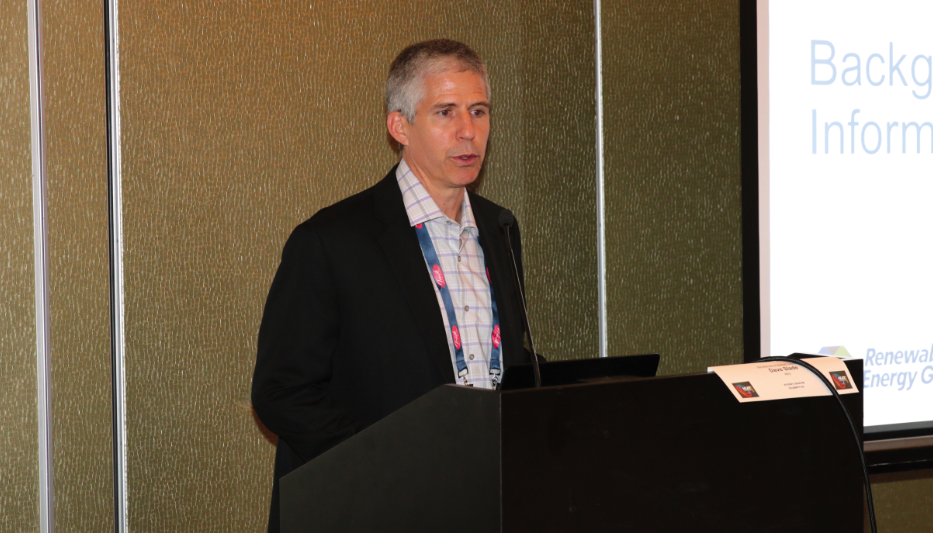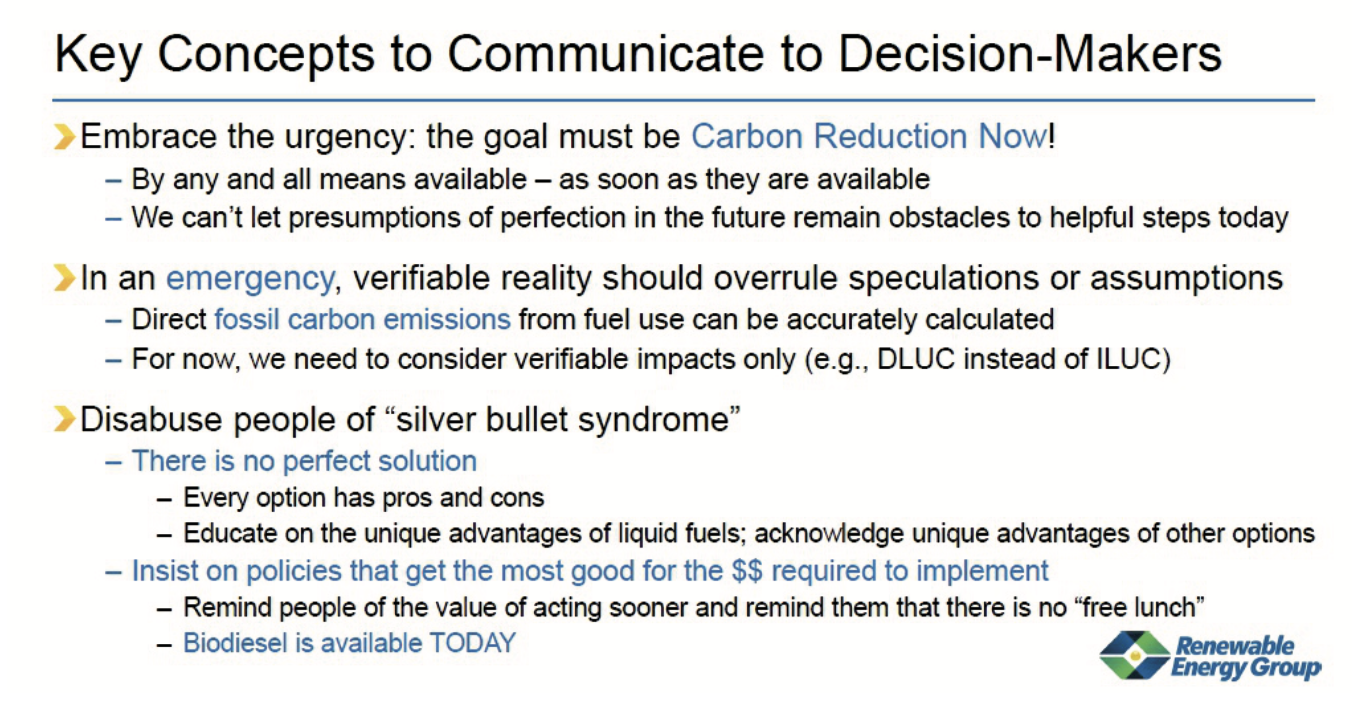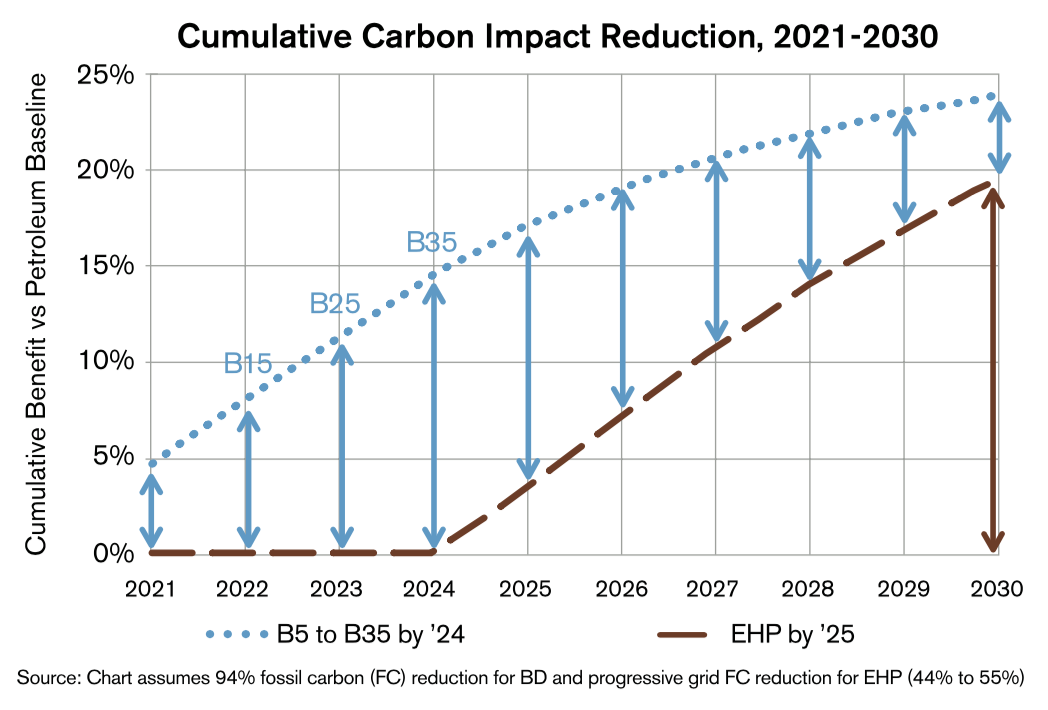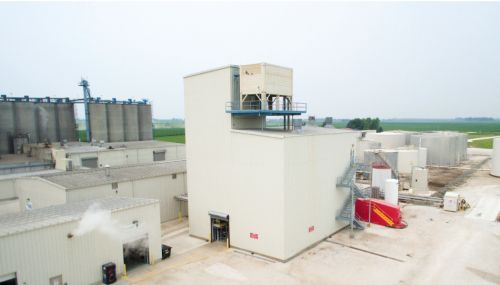All
Act Now for a Cleaner Tomorrow
by Steve Klein, Renewable Energy Group

Recapping the HEAT Show presentation by REG Chief Technologist Dave Slade, Ph.D.
On September 13, REG Chief Technologist Dave Slade, Ph.D. presented “Act Now for a Cleaner Tomorrow” to an audience of liquid heating fuel professionals attending the 2021 HEAT Show at Foxwoods Resort Casino in Ledyard, Connecticut. The presentation provided an in-depth look at the science behind the immediate and cumulative carbon reductions delivered by biodiesel and Bioheat® fuel.
Near the start of the presentation, Dr. Slade noted that although scientists have issued warnings about the dangers of climate change for decades, we are now witnessing firsthand its devastating impacts. More frequent severe weather events — from hurricane flooding to drought-induced forest fires — illustrate the urgency of reducing greenhouse gas emissions.
Scientists consider 2030 to be a critical year for climate change mitigation, meaning if significant and lasting GHG reductions are not achieved by this point, the consequences for life on our planet will be even more tragic than what we’ve already observed. Unfortunately, there appears to be a disconnection between what scientists are calling for and what commercial and government entities are doing in response.
Many state governments in the Northeast, for example, have set 2030 as the target date for achieving specific annual GHG reductions. However, these benchmarks typically fail to address the cumulative impacts of carbon emissions and reductions. Once carbon is emitted, it lingers in the atmosphere for many years, so each year’s annual emissions continue to have a negative impact for years to come. According to a popular model cited by Dr. Slade, one new ton of carbon emitted per year from 2021 to 2030 has the cumulative impact of 44.9 tons emitted throughout the decade.
This is why the environment can’t wait for proposed “zero-carbon” solutions that aren’t ready to be deployed today. It’s also why readymade solutions like biodiesel-blended Bioheat fuel offer the best alternative to fossil-based heating fuels along with clear advantages over electric heat pumps that draw power from a fossil-dependent electrical grid.
Dr. Slade’s analysis showed that increasing the biodiesel content of heating oil to 35% by 2024 provides greater cumulative carbon reductions every year between now and 2030 than switching to electric heat pumps in 2025. Furthermore, implementing these blends requires a substantially smaller investment; therefore, biodiesel can deliver the greatest cumulative carbon impact over the next 10 years at the lowest cost per ton of fossil-based carbon reduced.
With these benefits, biodiesel-blended Bioheat fuel delivers a clear value proposition for heating oil dealers and consumers, as well as governments intent on implementing real climate impact mitigation strategies. The only question then is how to communicate these key concepts to the decision-makers both in the policy arena and in homes across the Northeast U.S.
Dr. Slade concluded his presentation with three potential solutions, all of which speak to the immediate advantages of Bioheat fuel. I’ll conclude this recap by providing that entire slide. For more information, email Dr. Slade at dave.slade@regi.com or contact me directly.
Steve Klein is Senior Manager, Marketing at Renewable Energy Group. He can be reached at steve.klein@regi.com or 515-239-8364.


Related Posts
 Why Quality Matters in Your Biofuel Blends
Why Quality Matters in Your Biofuel Blends
Posted on June 25, 2025
 Incorporating Higher Blends of Biofuels
Incorporating Higher Blends of Biofuels
Posted on May 14, 2025
 NORA Programs at Eastern Energy Expo
NORA Programs at Eastern Energy Expo
Posted on May 13, 2025
 March Short-Term Energy Outlook
March Short-Term Energy Outlook
Posted on April 28, 2025
Enter your email to receive important news and article updates.
